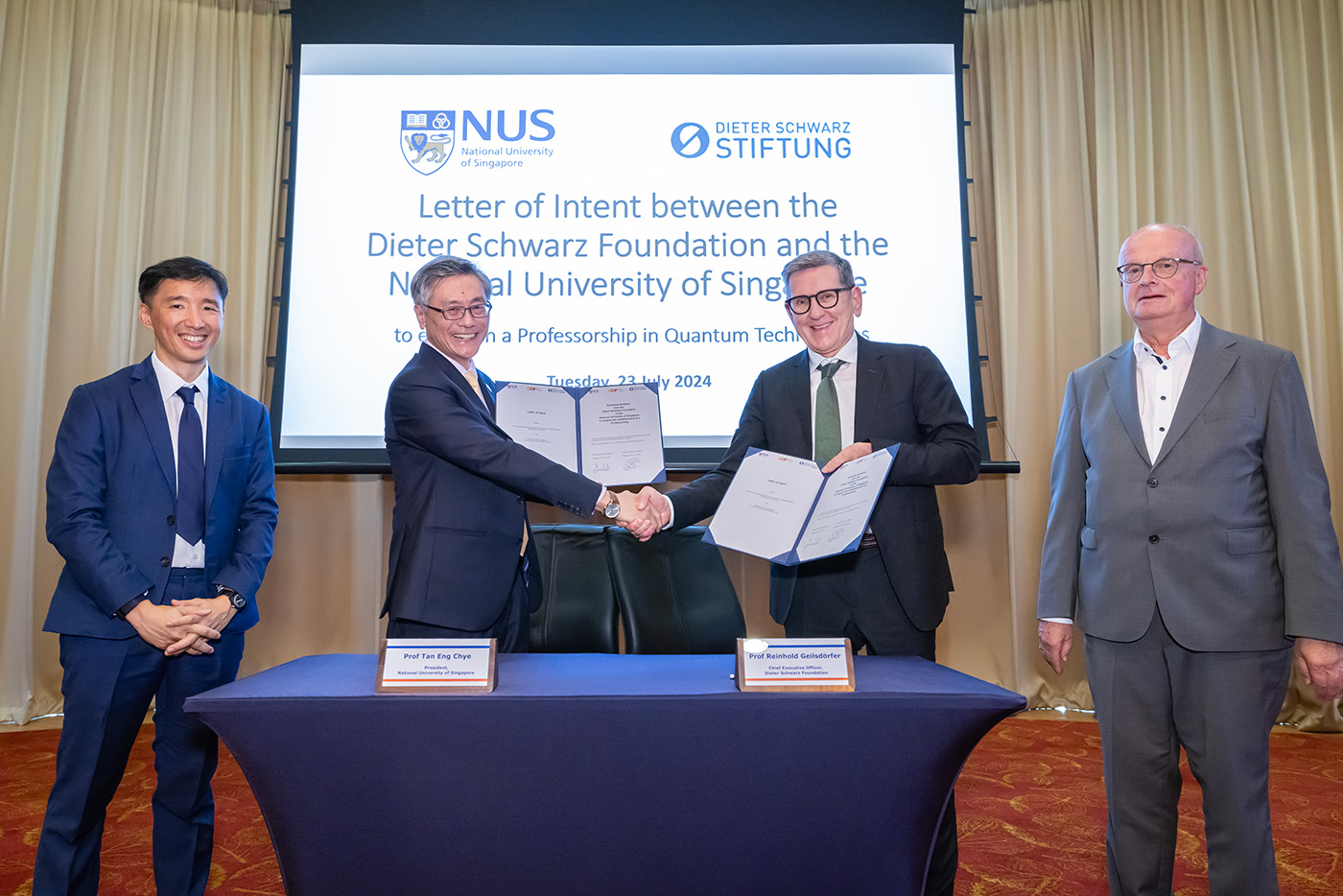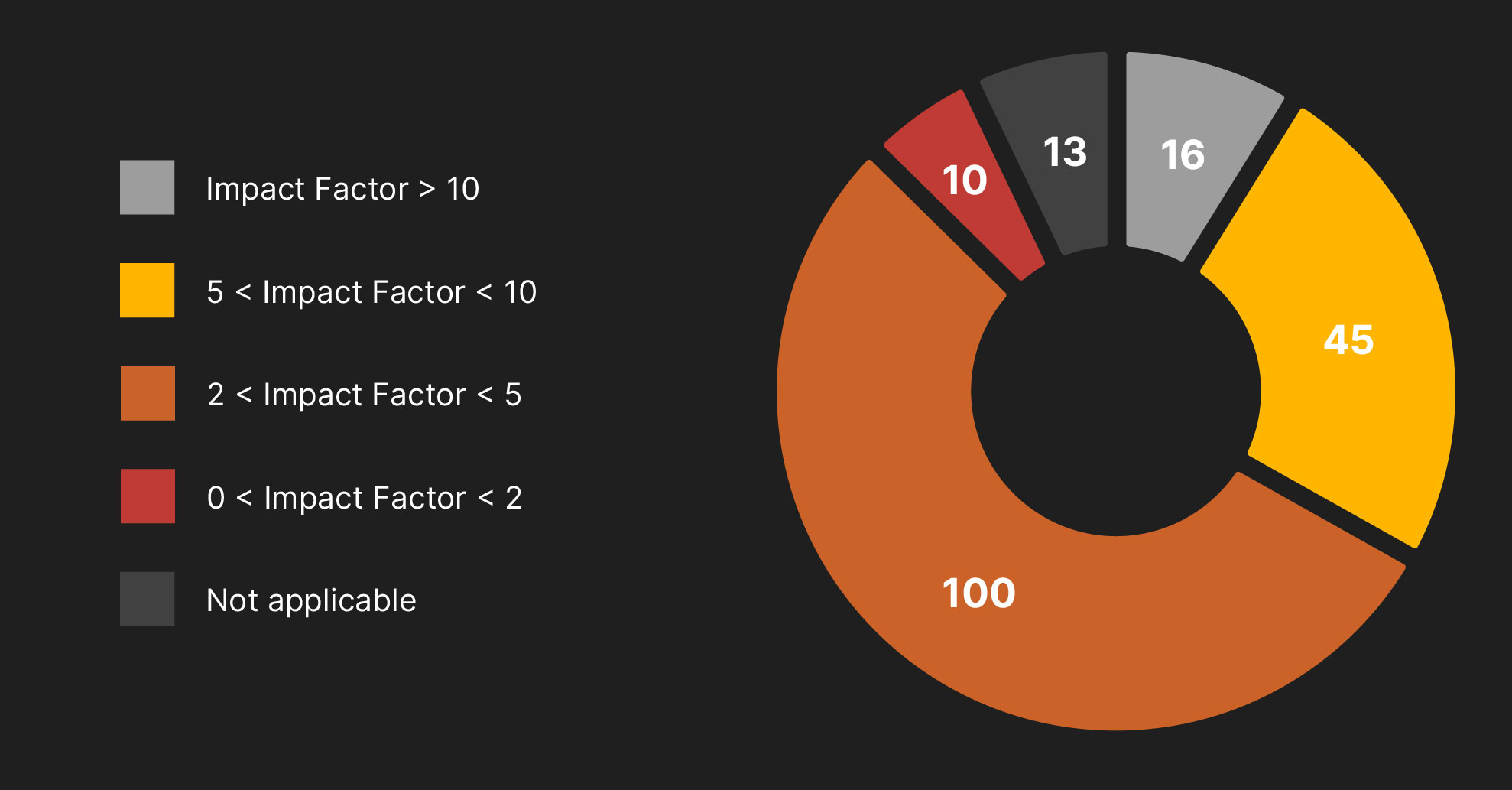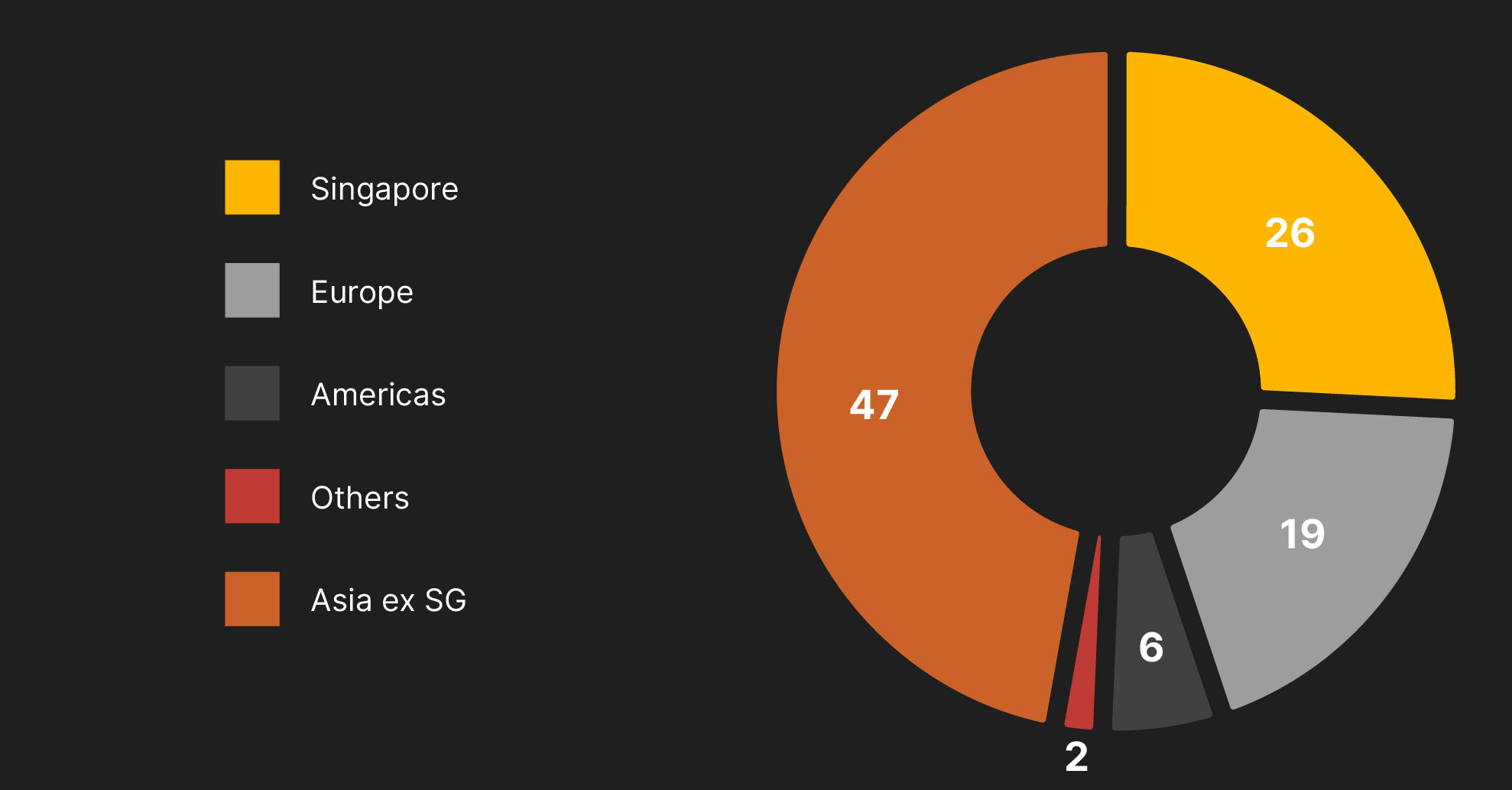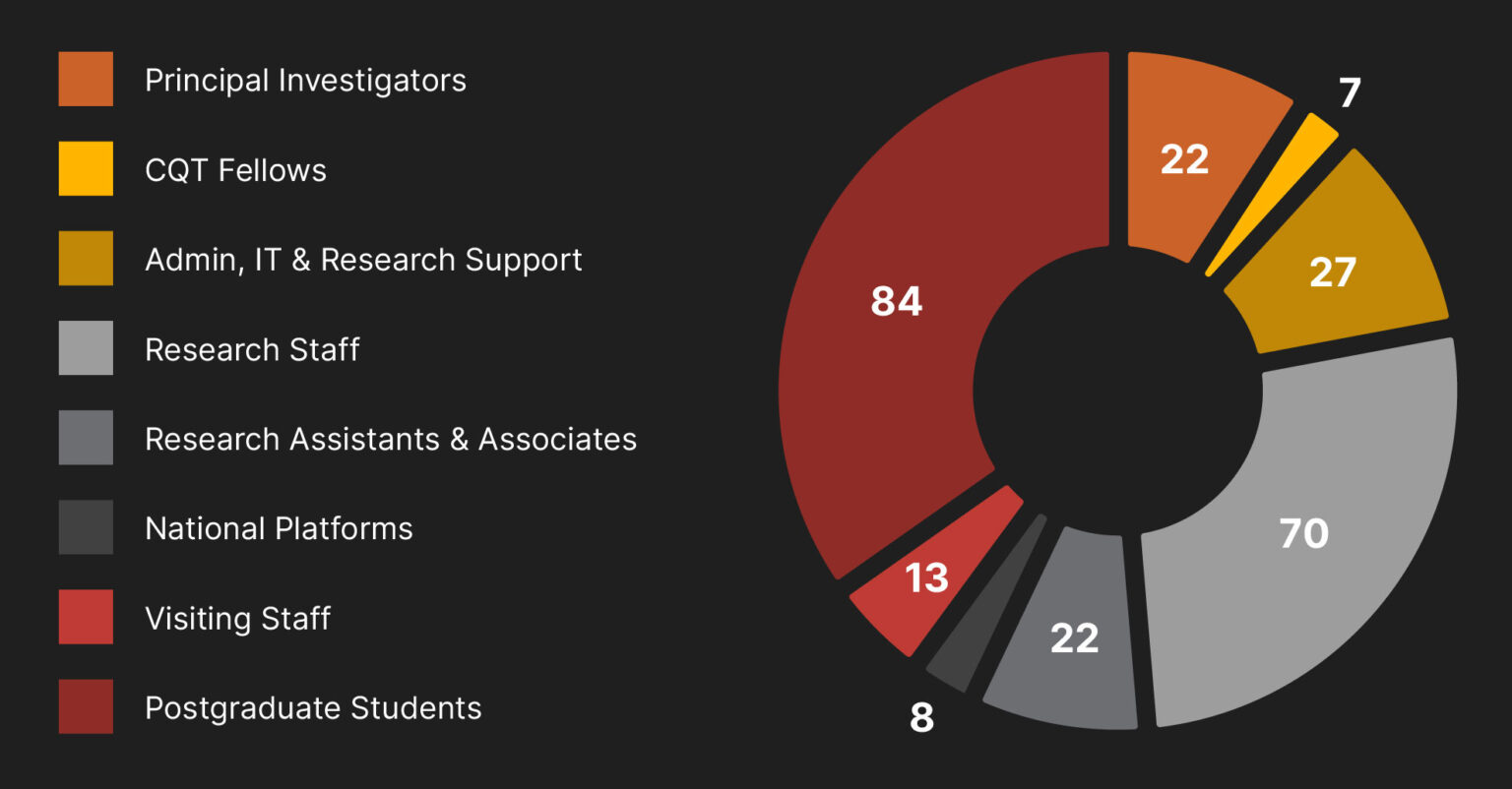Alice prizes debut at CQT with four recipients
CQT launched the prizes in 2025 to address the under-representation of women in quantum technologies
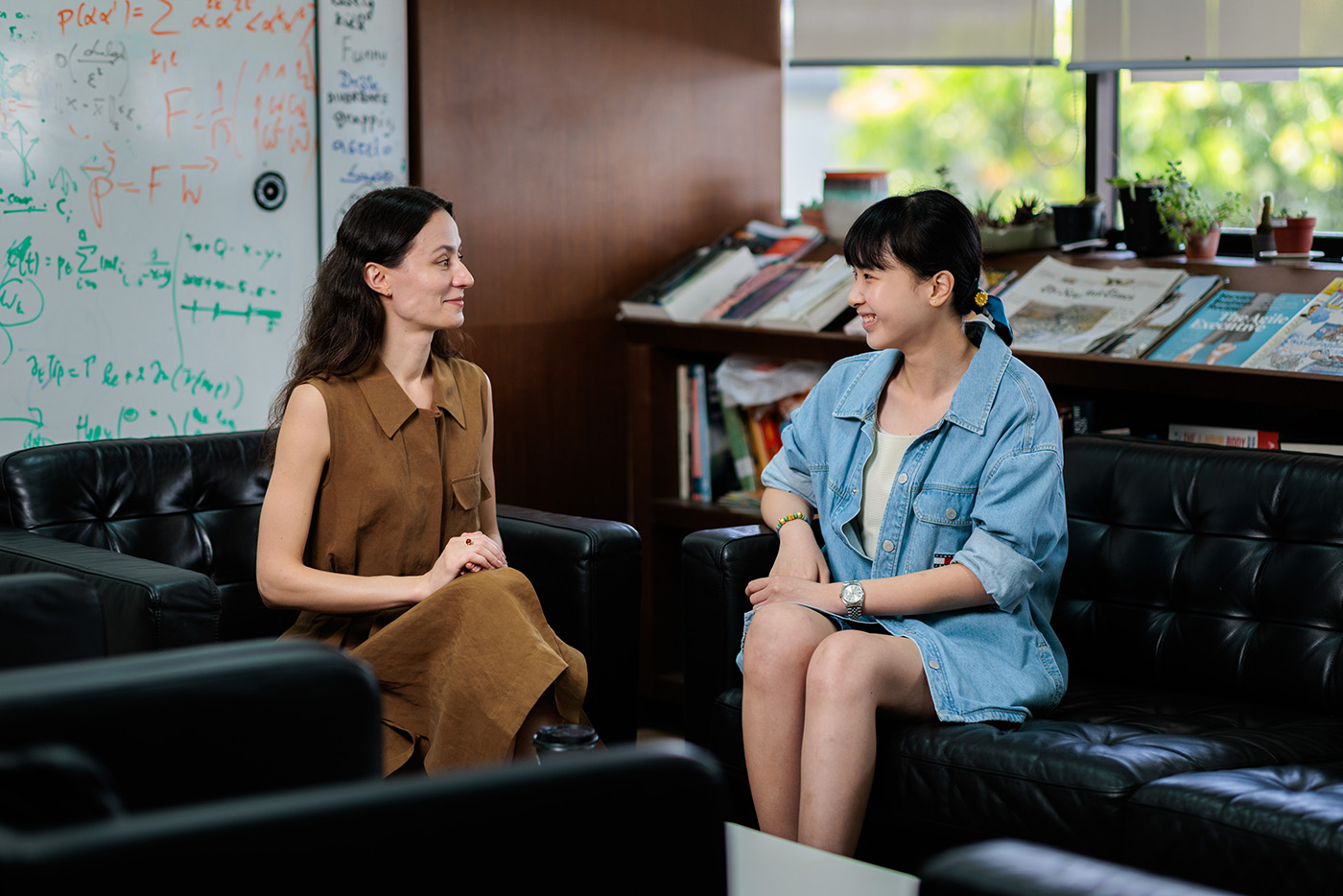
(From left) Lirandë Pira and Lim En Teng are recipients of the inaugural Alice Prizes. Two other young scientists, Shruti Pikle, and Tina Shariat, are also recipients of the Prize.
The Centre for Quantum Technologies (CQT) is proud to announce the recipients of the inaugural Alice Prizes, which are presented to women researchers at CQT.
The Alice Prizes have two categories: a prize for postdocs who are already doing outstanding research, and prizes for interns with an excellent academic track record.
Congratulations to Lirandë Pira on receiving the Alice Postdoctoral Fellowship, tenable for one year from 1 September 2025, and to Lim En Teng, Shruti Pikle, and Tina Shariat on being selected for Alice Internships.
“I am honoured to receive this fellowship and I am very happy CQT has this initiative in place,” says Lirandë. “This is part of a broader discussion about what can we do to support younger women doing research. When I think about what I can do, it’s about reaching out on a personal level. Representation matters – it introduces a feeling of belonging that keeps ambition alive,” she says.
These prizes unlock additional funding for their research positions as a step to support diversity in the Centre. Researchers who hold or have been offered positions in CQT are nominated for the prizes by their group leaders.
Meet the prize winners
Lirandë joined CQT in June 2024 as a Research Fellow in the group of CQT Principal Investigator Patrick Rebentrost. Lirandë studied computer science, then completed her PhD in machine learning and quantum algorithms at the University of Technology Sydney.
Now she works on all different aspects of quantum learning, including near-term algorithms, learning theory and quantum algorithms that would run on future fault-tolerant quantum computers.
“Quantum phenomena may allow us to extract other patterns in data sets that may not be tractable by classical computers, so that’s the interesting and meaningful bit of the research,” she says.
More fundamentally, she works on deriving bounds on the complexity of learning models that tell you how much time or resources a model needs to run and studies what you can guarantee about the learning achieved by quantum learning models.
With the Postdoctoral Fellowship, Lirandë also receives a research allowance.
The three Alice Internships are taken up by three young scientists working across disciplines.
- Shruti Pikle, an Engineering Physics and Data Science student at the Indian Institute of Technology Bombay, has already completed a stint with the group of Steven Touzard on quantum networking technology.
- Tina Shariat, a student in Electrical Engineering and Computer Science at the Amirkabir University of Technology in Iran, plans to arrive later in 2025 to work in the group of CQT’s Marco Tomamichel.
- Lim En Teng, a student in Physics at the National University of Singapore, will extend her internship with the group of Alexander Ling into a final-year project contributing to her degree.
En Teng says the award is meaningful. “I feel like all my work has been recognised,” she says. She worked on long-distance entanglement distribution using a silicon nanophotonic chip. Her role was developing an algorithm that compensated for changes in the light’s polarisation and optimising techniques to splice fibre together. The results earned her an invited talk at the SPIE Optics and Photonics conference in the United States in August 2025.
Having been unsure about sticking in physics before enjoying the experimental experience, En Teng is now considering options for a Masters’s or PhD.
Why it matters
Currently, only three of the Centre’s 34 research groups are led by researchers who identify as women. Launching these prizes at a less senior level is a small step to help redress this imbalance in the long term.
It follows the example of other prizes dedicated to women in physics. For example, Optica Foundation supports up to 20 Optica Women Scholars per year and the L’Oreal-UNESCO For Women in Science awards recognise exceptional researchers in the physical sciences in alternate years.
The under-representation of women in quantum technologies is widespread. In 2024, a group of female physics professors co-authored the paper “Women for Quantum – Manifesto of Values” and published it to the preprint server arXiv.
The professors wrote “We aim at achieving a true change. The first step is to acknowledge the unsatisfactory current situation of women in quantum physics.” The manifesto advocates for culture change in research that goes beyond numbers.
CQT’s wellbeing committee, which supports the organisation of the Alice Prizes, also works on other measures to support researchers and enhance the work culture at the Centre.
